News
Forty percent drop in household income from Jun to Dec in 2022: FAO report

Four in every 10 households in Sri Lanka experienced a reduction in their incomes from June to December 2022, and one in every two households are currently relying on negative coping mechanisms to cope with the lack of food or money to buy it, a Food and Agriculture Organisation (FOA) report said. In its response overview for the period of June to December 2022, the United Nations agency said the window of opportunity to support Sri Lankan farmers and their communities is narrowly time-bound.
“Immediate action to provide farmers with quality seeds, fertilisers and pesticides will enable them to protect their livelihoods and feed their communities. It is also critical to provide the most vulnerable farmers, livestock keepers and fishers with cash assistance to enable them to restore their productive assets and fast-track their recovery,” the report said.
Noting Sri Lanka is witnessing an unprecedented currency crisis, and the situation is exacerbated by political and social turmoil, the FAO report said nearly 40 percent of the population of Sri Lanka depend on agriculture as a primary source of income. The ongoing multidimensional crisis is posing an enormous threat to their livelihoods and disrupting the national food system, it said, and agricultural production is in a downward trend since mid-2021 due to the unavailability of fertilizers and other essential production inputs; livestock keepers are unable to access feed and basic veterinary supplies; and fishers are unable to access fuel for motorised boats.
“Consequently, the supply of food in local markets is shrinking and food inflation i is soaring, reaching 90 percent in July 2022,” the report added.
Sri Lanka’s collapsing currency has pushed up the price of foods by close to 100 percent over two years with salaries not keeping up pace, making it difficult for the less affluent in particular to afford basic carbohydrates and more affluent people being deprived of access to protein.In Sri Lanka it typically takes about two years to recover from a currency crisis and real salaries to recover somewhat, analysts say.
Sri Lanka has not fully emerged from the currency crises with money still being printed in smaller volumes and a surrender requirement in place, which also creates money and alters rupee reserves of individual banks helping maintain forex shortages.
The forex shortages as well as central bank trade restrictions make it difficult to import some foods and agricultural inputs.President Ranil Wickremesinghe has called for wide support irrespective of political differences to make the government’s food security agenda a success.The President further emphasized that everyone should forget their differences and dedicate themselves to rebuilding the country’s economy.
“In the year 2023, there is a possibility of a food shortage. We started the food security program to deal with that. I suggest that a review of the implementation of this program be done again in each divisional secretariat. Here you can get new data. Accordingly, we are proceeding with the food security program in a formal manner. This program will not end after 2023. We will continue to do so. Local councils have representatives from each political party. But we all have to implement this program together,” said the President, speaking at an event on Friday December 16.
“Somehow, we have been able to provide the fertiliser needed by the farmers. With the success of the Maha season, we will have a surplus of rice in the future. We have identified problems such as insufficient storage facilities. We are also working to solve those problems. At the same time, we have taking measures to control the price of paddy,” he said.
News
Gender inequality is not a women’s issue, it is a societal issue that demands attitudinal and behavioural transformation. – Prime Minister
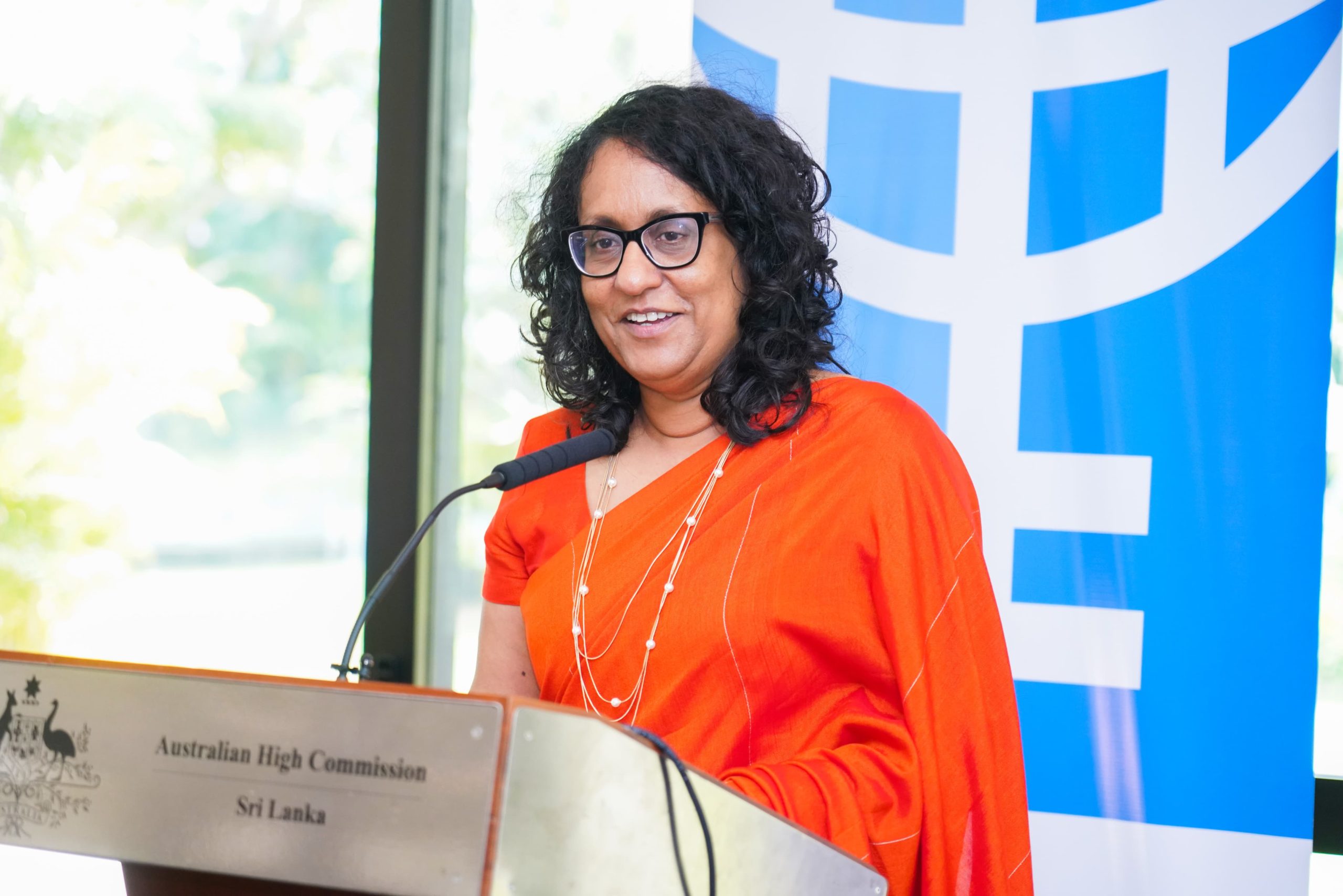
“For countries like Sri Lanka, collaborative efforts like THRIVE are essential in ensuring gender parity and eliminating gender-based violence”
The Prime Minister made these remarks while attending the official launch of ’THRIVE- Together for Her: Resilience-building, Inclusivity, and Voices for Equality in Sri Lanka’, held on Tuesday [25 March] at the Australian High Commission in Colombo which was jointly hosted by the High Commissioner of Australia, UN Women, and Chrysalis.
THRIVE is a five-year initiative implemented by UN Women and Chrysalis, and funded by the Government of Australia. This project contributes to achieving Outcome 6 – “Gender Equality and Women’s Empowerment” – of the UN Sustainable Development Cooperation Framework for Sri Lanka 2023-2027, which has been co-signed by the Government of Sri Lanka and the United Nations, guiding the work of the UN system in Sri Lanka.
The project aims to advance gender equality and women’s empowerment in Sri Lanka by strengthening the economic and social resilience of marginalized women to navigate and recover from crises, insecurity, and the impacts of climate change aiming women with disabilities, women-headed households, and women in the plantation sector across six districts – Mannar, Kilinochchi, Nuwara Eliya, Badulla, Moneragala, and Colombo.
Delivering the keynote address, Prime Minister Amarasuriya emphasized the need for structural and attitudinal change for ensuring gender parity and eliminate violence against women.
“Sri Lanka ranks high on the Human Development Index, with a literacy rate exceeding 92%, and over 60% of university students being women. However, only 35% of women participate in the paid workforce. It is necessary to find ways and means to ensure that women have opportunities to contribute towards the economy through employment opportunities and equal pay with given a dully acknowledge and recognize unpaid work and unpaid care work, which are often disproportionately carried out by women.
The Parliament of Sri Lanka adopted the Women Empowerment Act in 2024 which includes the establishment of an independent National Commission on Women to oversee women’s rights, and to create of a National Fund for Women. The administrative process for appointing the Commissioners is currently underway.
Further, as a government, we have implemented several benefits for women and young women under the national budget. As Minister of Education, I can confidently say that we have allocated funds to ensure children from marginalized communities have access to education including providing free uniforms, shoes, sanitary facilities, meals, books, and a stipend, ensuring that no child drops out due to economic barriers.
However, it is statistically proven that the 90% of women faced sexual harassment in public transport at least once in their lifetime and the Global Gender Gap Index of Sri Lanka lists at 122 among 146 countries that marks gender disparity is not just a women’s issue. It is a societal challenge that transcends gender, race, religion, and age.
Moreover, new threats are emerging. While digital tools offer great potential for development and technological advancement, they are also being misused to silence women, amplify biases, and fuel harassment. It is essential to create an inclusive digital space where everyone—regardless of gender, race, religion, or age—has equal opportunities to thrive in the digital age. The government remains committed to closing the gender digital divide and ensuring that women, especially young women, can participate independently in the digital economy.
Gender inequality is not a women issue, it is a societal issue that demands policy change, education, attitudinal and behavioural transformation. For countries like Sri Lanka, collaborative efforts like THRIVE are essential in creating a future where all women have equal opportunities to thrive.”
The event was attended by the Australian High Commissioner to Sri Lanka, Paul Stephens; UN Women Deputy Regional Director for Asia and the Pacific, Ms. Maria Holtsberg; United Nations Resident Coordinator, . Marc-Andr Franche; and other esteemed dignitaries.
[Prime Minister’s Media Division]
News
Ambassador of the Czech Republic meets Sri Lankan PM to strengthen bilateral relations
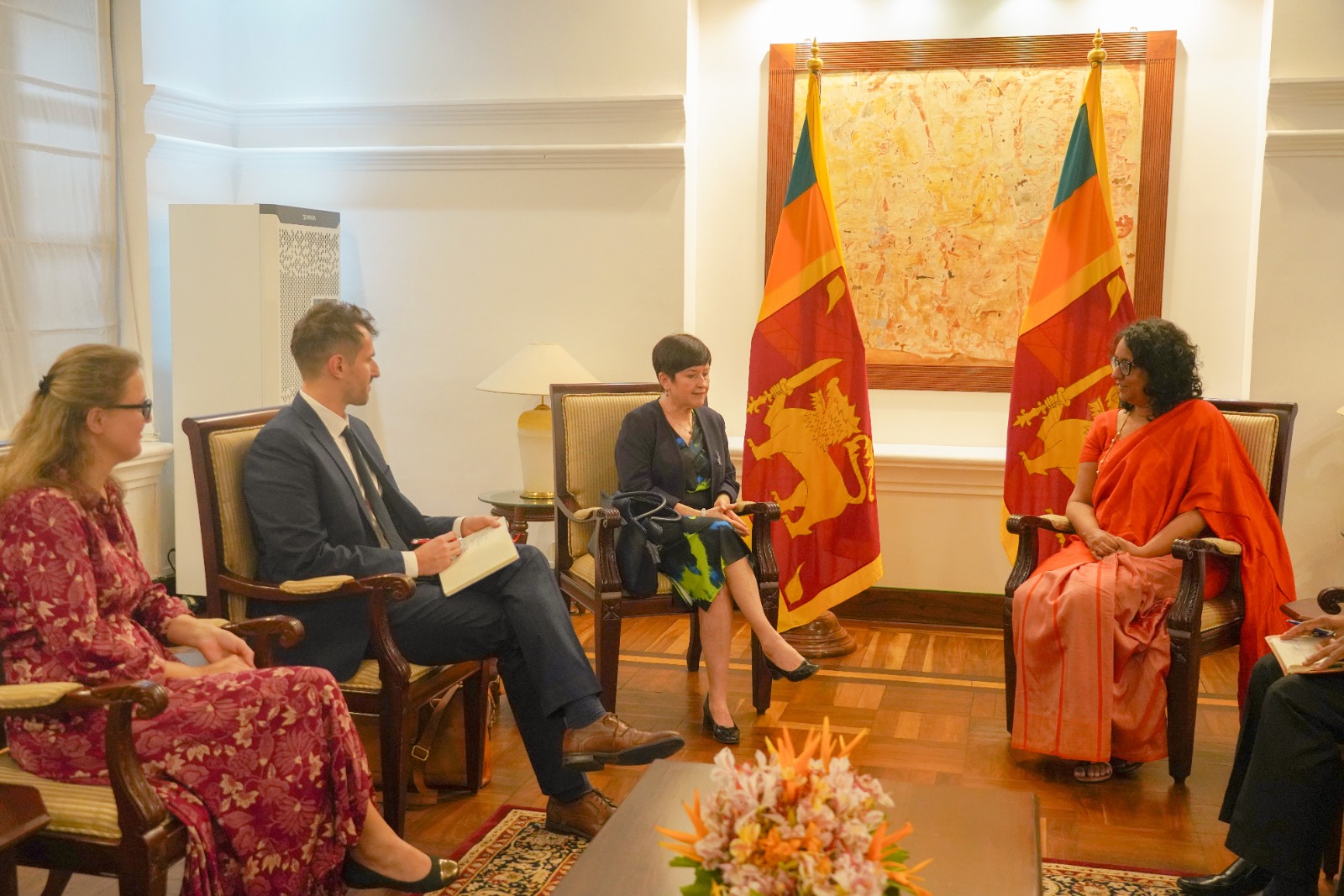
The Ambassador of the Czech Republic to Sri Lanka, Ms. Dr. Eliska Zigova, met with Sri Lanka Prime Minister, Dr. Harini Amarasuriya, at Temple Trees on Tuesday [25th of March]. The meeting underscored the longstanding friendship between the two nations and explored avenues to enhance bilateral cooperation.
Prime Minister Amarasuriya welcomed Ambassador Zigova and acknowledged the Czech Republic’s continued support for Sri Lanka. In response, Ambassador Zigova commended the new government’s commitment to democratic governance and holding two peaceful elections, reflecting political stability and public trust.
Discussions during the meeting focused on strengthening diplomatic and economic ties. Ambassador Zigova emphasized the importance of existing agreements and reiterated her government’s willingness to expand collaboration in key areas. Particular attention was given to discuss the posibility of signing a Memorandum of Understanding (MoU) on science and education, aimed at building academic partnerships, research collaboration, and knowledge exchange between institutions in both countries.
Prime Minister Amarasuriya highlighted the “Clean Sri Lanka Programme,” a nationwide initiative dedicated to environmental conservation and urban sustainability. Additionally, the two dignitaries discussed prospects for enhancing tourism, with the Prime Minister inviting more Czech visitors to experience Sri Lanka’s cultural heritage, natural landscapes, and growing eco-tourism sector.
The meeting was attended by senior officials from the Embassy of the Czech Republic to Sri Lanka. The Sri Lankan delegation included Pradeep Saputhanthri, Secretary to the Prime Minister, and P.R.S.S. Gunaratna, Director General of the Europe & North America Division at the Ministry of Foreign Affairs.
[Prime Minister’s Media Division]
News
Two HC judges withdraw from hearing Krrish case
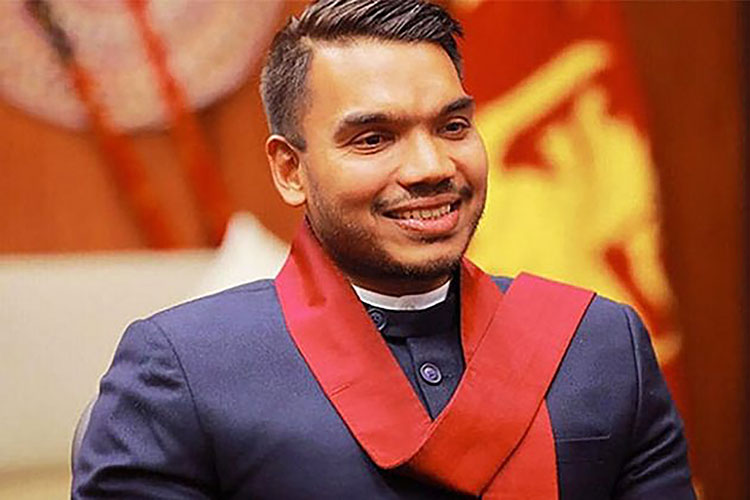
Alleged criminal misappropriation of Rs 70 mn:
Colombo High Court judges Manjula Thilakaratne and Sujeewa Nissanka yesterday (27) withdrew from hearing Krrish case involving SLPP National Organiser Namal Rajapaksa.
The Attorney General in late January this year filed indictments against Rajapaksa. The former minister has been accused of criminal misappropriation of Rs. 70 mn provided by Krrish Group for the development of rugby in Sri Lanka.
HC judge Thilakaratne declared his withdrawal from the case having referred to certain comments directed at him on social media. The judge said that his decision was influenced by comments made by journalists Poddala Jayantha and Sanath Balasuriya.
Subsequently HC judge Sujeewa Nissanka, too, declared his intention to quit.
The case would be called before Colombo Chief High Court Judge Adithya Patabendige on May 21 to name a suitable judge for the case to be referred.
The Krrish deal was first investigated by the yahapalana government.
-

 News5 days ago
News5 days agoSeniors welcome three percent increase in deposit rates
-

 Features5 days ago
Features5 days agoThe US, Israel, Palestine, and Mahmoud Khalil
-
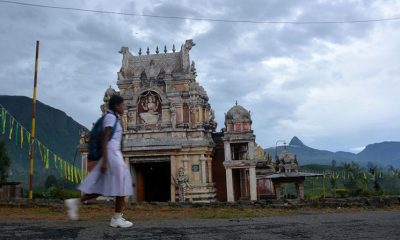
 News5 days ago
News5 days agoScholarships for children of estate workers now open
-
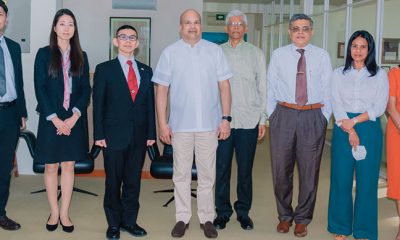
 News6 days ago
News6 days agoDefence Ministry of Japan Delegation visits Pathfinder Foundation
-
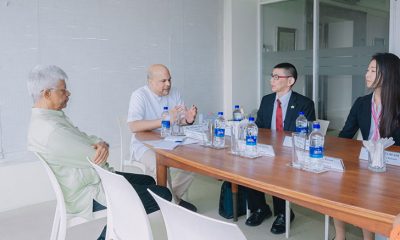
 News5 days ago
News5 days agoJapanese Defence Delegation visits Pathfinder
-
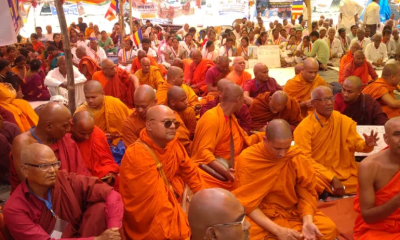
 Foreign News4 days ago
Foreign News4 days agoBuddhism’s holiest site erupts in protests over Hindu ‘control’ of shrine
-

 Editorial6 days ago
Editorial6 days agoWhen promises boomerang
-
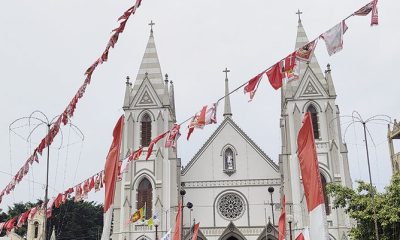
 News6 days ago
News6 days agoBan on altar girls upsets nuns, stirs talk on women’s church roles











